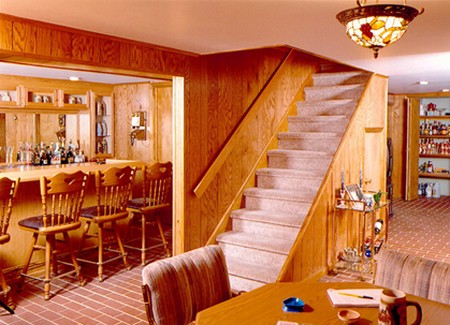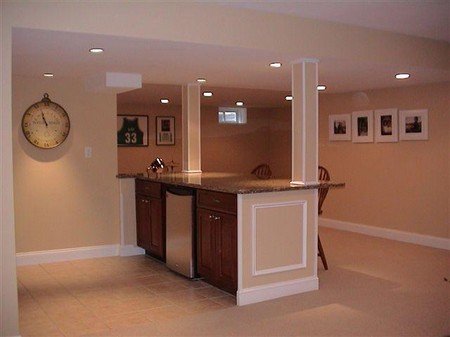If you decide to hire a residential or commercial contractor, there are the usual places to look, such as the Yellow Pages, Web sites (where many contractors advertise today), and building contractors’ directories in local newspapers and magazines. You may also search for recruitment agencies who have a good process for hiring construction jobs, for they can assure you that their contractors are qualified workers. We also recommend you the queenslander renovations camp hill contractors.
Better sources are personal recommendations of friends, relatives, and associates who have had work done by contractors. Typically these people will either rave over the wonderful job done or rant at the terrible experience they had. It can tell you a lot, so if you are going to be contacting professionals then make sure you get advice from Unique Vanities.
In addition, ask for personal recommendations from local real estate agents and building materials suppliers. Find out if the person has worked specifically with the contractor in the past. You can also read our Tips For Choosing A Roofing Contractor. The must know tile backer boards like Wedi board are important for bathroom renovations.

Contractors make their living not only from their work but also from their ability to get work. In other words, they soon learn to be very nice to customers, or they wash out. Thus, don’t be blinded by the fact that the contractor seems to be “such a nice guy/gal.” Expect contractors to be very nice, but be on your guard too.
You can also contact the National Association of the Remodeling Industry at (703) 276-7600 or www.nari.com, and the local offices of building and trade associations. Finally, if you see renovation work being done in your neighborhood, stop by and ask if you can take a closer look. Talk to the contractor involved. It’s a good way to get leads, the Konnect Building Solutions home renovations in New South Wales can also help you with this.
Once you’ve found a contractor for your home renovations, ask for recommendations of other suppliers. Contractors almost always can suggest people in every line of construction work. You can thus network your way to really good people.
What Should I Look For in a Contractor?
When you meet a contractor, chances are he or she will want to look at your plans, if you have any, as well as the site itself. The contractor will ask you all sorts of questions. For each one the contractor asks, ask and get an answer to your own question. You should ask the contractor at least the following questions.
Question 1: “Have You Done This Type of Work Before and Can You Supply References?”
Once you’ve located a contractor, be sure to find out what jobs he or she is currently working on and if you can go over and check them out. Look to see if the past work is similar to the sort of work you want done.
Ask for references. Contractors often carry a photo album showing examples of their work. Ask for the name and number of the People who had the work done. Then call.
Find out if the homeowners liked the finished work, if there were any difficulties along the way, and if they can give a good recommendation. If the project done is similar to yours, you may even get invited out to see the contractor’s work firsthand.
My own rule is never to hire a contractor unless I first get a recommendation and can see the work that was done. This is a vital step and you should not overlook it. It’s far too late when you’re into the job to learn that the contractor is sloppy or does only mediocre work.
Question 2: “Will You Yourself Do the Actual Work?”
The contractor may be nicest, sweetest person in the world with all kinds of experience. But what good does that do you if the contractor then hires your job out to someone else who is less experienced or careful?
If you’re going to be working directly with the contractor, find out if your personalities mix. Talk to the person for a while. Does he or she have a family? How does the contractor feel about working with others? You don’t want to learn too late that the person you’ve hired does things only one way: his or her way.
You want the person you hire to be the one who actually does the work. Don’t accept substitutes. You could get a bum job.
Question 3: “Are You Licensed?”
All states license contractors. However, not everyone who wants to work for you will have a license. Should you insist on hiring only licensed people?
The safe answer is yes. There are good reasons.
– You can call the state licensing board to find out if there are complaints against the contractor or if his or her license has been revoked or suspended.
– If a licensed contractor messes up the job, you can sue to recover damages more easily in small claims court. (The presumption is that a licensed contractor knows what he or she is doing.)
– If you have a disagreement with the contractor, you can threaten to file a complaint with the state licensing board. That will sometimes get the contractor to see things your way.
Just because the state licenses the contractor, doesn’t mean it does a good job of policing. In many states the licensing board takes action only in the most severe circumstances and only after repeated complaints.
Further, in many states the complaints against contractors are not made easily available to the public. Just because a contractor has a license is not a guarantee of good service.
On the other hand, you may find someone without a license who is willing to do the job for less. And that person may provide many references from homeowners who were all extremely pleased with the work.
Still be wary, however. The unlicensed contractor typically does not have insurance, which could be a problem for you if there’s an injury on the job. Further, the unlicensed contractor may have difficulty in getting good prices for materials, which could end up costing you more for the job in the long run.
I’ve worked both ways. Generally, I won’t hire unlicensed contractors to do any major work. For the small jobs, however, I will consider them.
Question 4: “Do You Have Workers’ Compensation?”
People get injured on the job all the time. Renovation, just like new construction, carries with it some degree of hazard. Therefore, you want to be sure that the contractor carries insurance to cover injuries. This is usually in the form of state workers’ compensation.
When you are your own contractor, it is usually up to you to see to !t that the people you employ are covered. Indeed, in some states it may even be considered illegal to employ a person without providing workers’ compensation.
Be sure to ask to see a current workers’ comp policy. Also, check with your homeowner policy. It may offer you workers’ comp automatically, at least for small jobs that you’ve contracted.
Be aware that in today’s workplace, many people do not have health insurance. That means if they get injured on the job and there is no workers’ compensation to cover the injury, their only recourse may be to sue you.

Question 5: “Can You Post a Performance Bond?”
Posting a bond is usually of concern when you hire a general contractor and when the job is for a substantial amount of money. A performance bond essentially promises that if the contractor can’t finish the job in a workmanlike fashion, the bonding company will step in and see to it that the job is completed, up to the amount of money of the bond. Be aware that getting a bond involves a great deal of hassle, time, and paperwork.
If you go with a contractor who doesn’t post a bond, be sure you keep tight control of the money flow. For example, you may want to pay for materials yourself, and pay for work only as it’s completed. No, all this can’t guarantee that you won’t have problems, such as mechanic’s liens, but it can help.
It takes very good credit, a lot of capital, and sterling past performance to be able to post a bond, plus it can cost up to 5 percent of the price of the contract.
However, to some extent, it’s more important to know if a. contractor can qualify for a bond than it is to actually get one.
Many, if not most, contractors will be unable or unwilling to post a performance bond. Does that mean you should eliminate those who can’t or won’t?
Generally speaking, contractors who are able to post a bond will have the very best records. But they may also be among the highest bidders. Yes, you can be fairly sure you’re getting a Cadillac job with them. But perhaps you don’t need that kind of assurance.
In the many projects that I’ve done, I’ve rarely had contractors post a bond. I’ve simply asked the contractors if they could, and been pleased to learn that, yes, it was something they could do. But I’ve rarely wanted to go through the expense and hassle of it myself.
If the recommendations were excellent, if the previous work, which I looked at, was to my liking, and if the person seemed decent and honest, I went with the contractor, regardless.
Question 6: “Can You Give Me a Total-Price Bid?”
It’s important to remember that you’re not building a rocket ship. You’re simply doing a home renovation project. Further, the contractor has presumably done the sort of job you propose many times before. Therefore, there’s no reason that a contractor can’t give you a firm bid. By the way, a firm bid means, “I’ll do all the work for $1500.” Or $10,000, or whatever.
The exception to a firm bid is when an unexpected problem crops up (usually during demolition) that requires a change in plans. However, most contractors will protect themselves by adding a clause to the contract for dealing with such unexpected occurrences. The clause allows them to add a certain amount to the price, usually on a time-plus-materials basis.
As I say, I was desperate, so I signed on August 1 and the contractor said he’d get to it within a few weeks.
August rolled by and when September came, I called to see when he would start. I learned that he’d taken on a dozen or more other jobs in the area and simply couldn’t get to mine. But he said he’d be there soon.
September ended and October rolled around, and along with it came the first suggestions of winter. Still no contractor. When I called, I learned that he was being sued by another person in the area for doing a lousy roofing job. Now I was really worried.
November and still no contractor. Finally, in mid-December, in the middle of a winter storm with snow falling lightly, he and his crew showed up and in a remarkable two days put up my roof. They were lucky enough to have Portable Construction Heaters to stay warm during the cold weather.
In a way I was lucky the job got done even without firm start and end dates. But it was a great learning experience for me. From that point on, I never accepted a contract that didn’t have a specific start and finish date, something I could haul the contractor to court on if he or she didn’t perform.
Most contractors will go along with a specified start date, particularly if I’m willing to give them a few days or even weeks of flex time. On the other hand, few contractors like to have a finish date, since it could get them into trouble if they’re doing too many jobs. Nevertheless, I also insist on it.

Be flexible on finish dates. Ask the contractor when he or she is likely to be finished, then tack a couple of weeks onto the finish date. If the contractor is still uncomfortable, add another week. You just want the work to be done in a timely fashion. If the contractor still refuses, you have to wonder why.
Start and finish dates can work against you. If you add a few days to the beginning and a few weeks to the end, a savvy contractor could take all that time, when otherwise he or she might have finished in just a few days total!